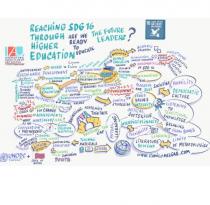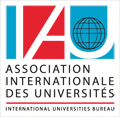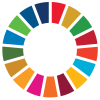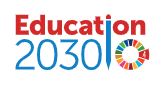IAU and Members at the UNODC E4J dialogue series
News / Actualités

IAU and Members at the UNODC E4J dialogue series
From 2-4 December 2020, IAU and Members took an active part in the UNODC E4J dialogue series. Recordings of sessions are now available.
During the very interactive and thought-provoking four days, some 178 external speakers and 2100 participants from 109 countries took part in 38 sessions which were conducted in 7 languages and hosted by E4J, several UNODC’s Field Offices as well as a broad range of partners. IAU co-organized and took part in the following sessions during theUNODC E4J Dialogue Series : Reaching SDG16 through Higher Education on Thursday 03.12.20: Click here for the recording Five years into the adoption of the UN Agenda 2030 and its roadmap with 17 Sustainable Development Goals (SDGs) and 169 sub-targets, many stakeholders have started work with the Goals, which are particularly valued for their interconnectedness and universality. Realizing that the SDGs will not be achieved if we continue doing things as we have always done them, stakeholders including Member States, various UN entities and academia have come up with new ways and more innovative approaches. Linking various SDGs, such as SDG4 on Quality Education and SDG16 on Peace, Justice and Strong Institutions is one of these new approaches. Higher Education has a special role to play in educating future leaders; leaders are required to promote the rule of law thereby contributing to the achievement of SDG16. Higher Education’s Role in Preventing Environmental Crime Friday 04.12.20: Click here for the recording SDG 16 focus on Peace, justice and strong institutions and this rule of law is critical. The magnitude of environmental crime is only understood based on available information and research institutions are important in playing this very critical role of generating data through research on various aspects of environmental crime such as illegal logging, trophy trafficking, charcoal trading. Who consumes this data? However, unless this information that is generated by higher institution is processed to a level that can be consumed by policy makers and citizens who are often not scientist, it remains a discussion at ivory tower. Such data analysis and sharing should be used to improve institution governance through stimulating policy discussion and change. This objective of preventing environmental crime could also be achieved through learning and training using module such as those generated by E4J and making them widely available to tutors across disciplines at university level. High Level Closing panel, Friday 04.12.20: Click here for more information The High-level Closing Panel of the E4J Global Dialogue series, a joint effort of UNODC, UNESCO and the State of Qatar, provided a forward-looking perspective on the opportunity brought by the COVID-19 crisis to rethink education for justice worldwide for peaceful, just and inclusive societies. The discussions addressed specific challenges to the rule of law brought by the pandemic and framed the deliberations around the links of those to the education of the next generation. Furthermore, the panel considered the role of education stakeholders worldwide in rethinking future education models while addressing the existent fragilities to spearhead the progress towards the 2030 Agenda for sustainable development. Recap Highlights Day 4: Click here for the recording On this final day, the UNODC wrap up offers a broader look at the week’s discussions – what was covered, what the key takeaways are from the range of sessions, and all involved will do next, drawing from the ideas shared by so many. Join our panelists – Mauricio Peixoto, Hilligje van’t Land, Janet Shufor and Ashok Pandey – as well as Doha Declaration Global Programme team members. More information at www.unodc.org/e4j.


 INGO with UNESCO Associate Status / ECOSOC Consutative Status
INGO with UNESCO Associate Status / ECOSOC Consutative Status